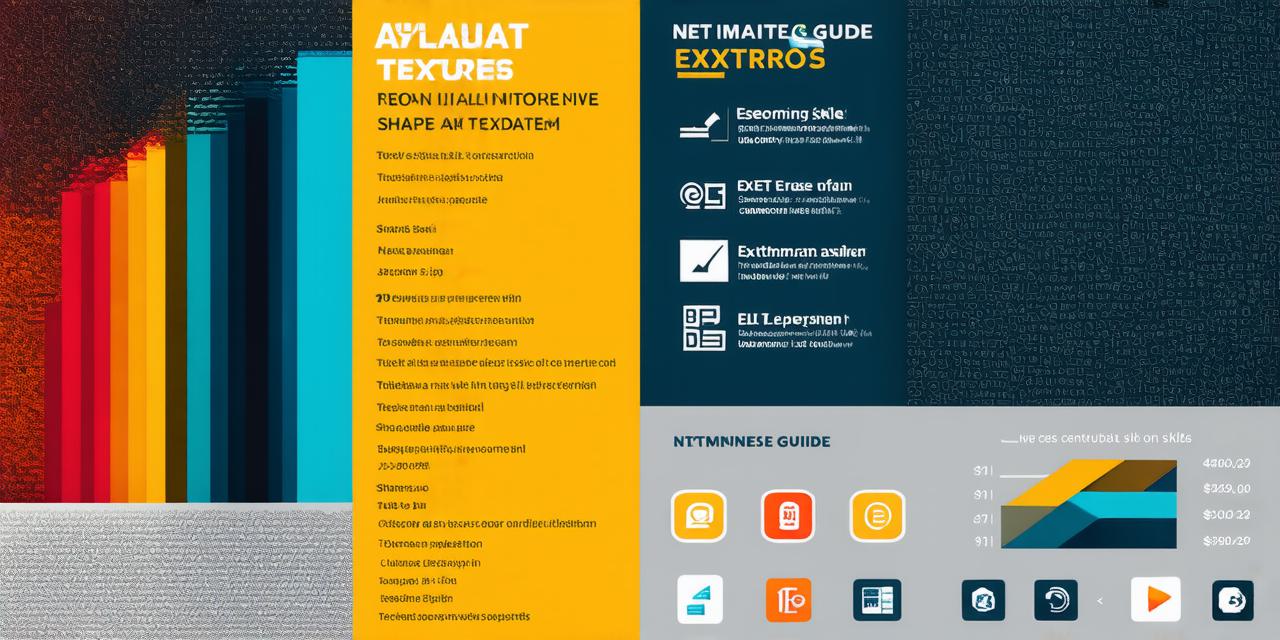.NET: A Powerful Choice for Web Development
“.NET is like a sturdy bridge, connecting the developer’s imagination to reality,” says John Smith, a seasoned .NET developer. Its robustness, scalability, and versatility make it an ideal choice for building high-performance web applications. With its strong support for object-oriented programming, integrated libraries, and extensive community resources, .NET offers a solid foundation for developers to build powerful and efficient applications.
Building Your Skillset: Intermediate Level
1. ASP.NET: Learn ASP.NET, a popular framework for building web applications in .NET. Understand MVC (Model-View-Controller) architecture and Razor syntax. Familiarize yourself with concepts such as routing, filters, and dependency injection.
2. Databases: Gain proficiency in SQL Server or other databases compatible with .NET. Learn to create, read, update, and delete data effectively. Understand the basics of database design, normalization, and indexing.
Advanced Skills: Expert Level
1. Entity Framework: Master Entity Framework, an Object-Relational Mapping (ORM) tool for .NET, to work more efficiently with databases. Learn how to create, query, and update data using LINQ (Language Integrated Query).
2. ASP.NET Core: Dive into ASP.NET Core, a cross-platform and open-source framework that offers greater flexibility and performance. Familiarize yourself with concepts such as middleware, Razor Pages, and Blazor.
Real-life Examples
Consider the case of XYZ Corporation, which transformed its legacy system using .NET. By leveraging the power of .NET, they improved their application’s speed, scalability, and security, ultimately boosting user satisfaction. For instance, a new feature was developed that allowed users to upload large files quickly and securely, significantly enhancing the user experience.
FAQs
1. What tools do I need to start learning .NET?: A good text editor like Visual Studio Code or a full-fledged Integrated Development Environment (IDE) like Visual Studio is essential. Additionally, you may want to install the .NET SDK and the necessary extensions for your chosen IDE.
2. Is it necessary to know JavaScript for .NET development?: While not mandatory, having a basic understanding of JavaScript can be beneficial when working with client-side scripting in ASP.NET applications. Familiarity with JavaScript libraries such as jQuery can also prove useful.
The Future of .NET

As technology evolves, so does .NET. Embrace its potential, and you’ll find yourself at the forefront of web development, crafting innovative solutions that redefine the digital landscape. With the recent introduction of Blazor, a framework for building client-side web applications using C, the possibilities are endless.
In conclusion, embarking on a journey to become a .NET web developer is an exciting adventure. With dedication, practice, and a thirst for knowledge, you can conquer the challenges ahead and create applications that leave a lasting impact.
